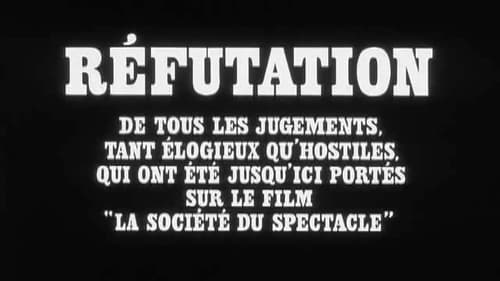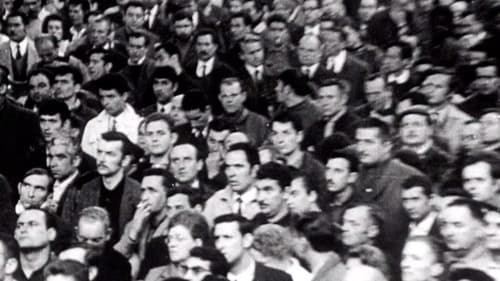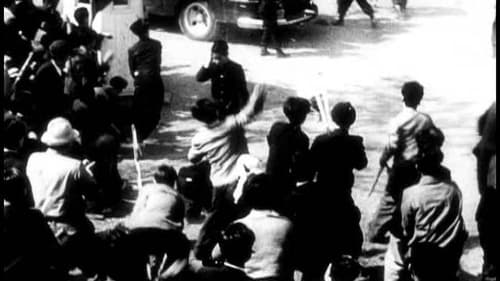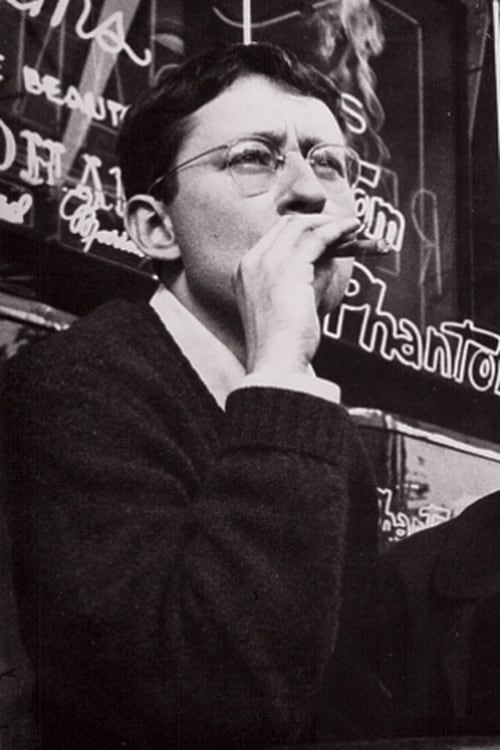Guy Debord
출생 : 1931-12-28, Paris, France
사망 : 1994-11-30
약력
Guy Ernest Debord (December 28, 1931 - November 30, 1994) was a French Marxist theorist, writer, filmmaker, member of the Letterist International, founder of a Letterist faction, and founding member of the Situationist International (SI). He was also briefly a member of Socialisme ou Barbarie.

Self (archive footage)
The panorama of human affairs encounters the “man with a movie camera”. His playground has no boundaries, his curiosity no limits. Characters, situations and places pitch camp in the life of a humanity that is at once the viewer and the thing viewed. But what are the last days of this humanity? Have they already passed? Are they now or still to come?


Writer
Except for a few brief evocations of Debord’s “art” during the first ten minutes or so, most of this “antitelevisual” video consists of television clips illustrating the extreme degradation and delirium of the present society. It’s a powerful denunciation, but not so deft and subtle as Debord’s films, perhaps because it was made during the worsening stages of his final illness. Presumably intended as a parting shot at the society he detested, it was completed shortly before his death in November 1994 and shown January 9, 1995, on a French cable channel along with La Société du Spectacle and Réfutation de tous les jugements (whence the video copies that have since circulated).

Director
A Latin palindrome is the title of Guy Debord's last film, in which he, as narrator, explains that he will make neither concessions to the tastes of his viewers nor to the dominant ideas of his day. After extensively insulting the audience that goes to the cinema to forget its heteronomous life, the film becomes autobiographical, using images from the world of spectacle: advertising brochures, clips from feature films (Les enfants du paradis), comics, aerial footage of Paris, tracking shots through Venice, photographs of friends – all commented on by Debord, with an at times melancholy undertone: "This Paris no longer exists." His assessment is that one of the great pleasures of his life has been the sensation of the passage of time, and as a witness to the disintegration of social order, he has loved his epoch.

Writer
A Latin palindrome is the title of Guy Debord's last film, in which he, as narrator, explains that he will make neither concessions to the tastes of his viewers nor to the dominant ideas of his day. After extensively insulting the audience that goes to the cinema to forget its heteronomous life, the film becomes autobiographical, using images from the world of spectacle: advertising brochures, clips from feature films (Les enfants du paradis), comics, aerial footage of Paris, tracking shots through Venice, photographs of friends – all commented on by Debord, with an at times melancholy undertone: "This Paris no longer exists." His assessment is that one of the great pleasures of his life has been the sensation of the passage of time, and as a witness to the disintegration of social order, he has loved his epoch.

Editor
Refutation of All the Judgements, Pro or Con, Thus Far Rendered on the Film "The Society of the Spectacle"

Narrator
Refutation of All the Judgements, Pro or Con, Thus Far Rendered on the Film "The Society of the Spectacle"

Writer
Refutation of All the Judgements, Pro or Con, Thus Far Rendered on the Film "The Society of the Spectacle"

Director
Refutation of All the Judgements, Pro or Con, Thus Far Rendered on the Film "The Society of the Spectacle"

Narrator (voice)
Guy Debord's analysis of a consumer society.

Screenplay
Guy Debord's analysis of a consumer society.

Director
Guy Debord's analysis of a consumer society.

Novel
Guy Debord's analysis of a consumer society.

Debord’s eighteen-minute Critique of Separation directs its experimental attentions to “the documentary.” Debord draws from a catalogue of newsreel footage and book covers, rephotographed photographs, views of Paris and its neighborhoods, and a catalogue of disabused, seemingly offhand footage of him and his friends in the porous zone comprising the cafe and the street.

Director
Debord’s eighteen-minute Critique of Separation directs its experimental attentions to “the documentary.” Debord draws from a catalogue of newsreel footage and book covers, rephotographed photographs, views of Paris and its neighborhoods, and a catalogue of disabused, seemingly offhand footage of him and his friends in the porous zone comprising the cafe and the street.

Writer
This short film can be considered as notes on the origins of the situationist movement; notes which thus naturally include a reflection on their own language.

Director
This short film can be considered as notes on the origins of the situationist movement; notes which thus naturally include a reflection on their own language.

Debord directed his first film, "Hurlements en faveur de Sade" in 1952 with the voices of Michele Bernstein and Gil Holman. The film has no actual images; instead, it shows bright white when there is speaking and black when there is not. Long silences separate speaking parts. The film ends with 24 minutes of black silence.

Director
Debord directed his first film, "Hurlements en faveur de Sade" in 1952 with the voices of Michele Bernstein and Gil Holman. The film has no actual images; instead, it shows bright white when there is speaking and black when there is not. Long silences separate speaking parts. The film ends with 24 minutes of black silence.








